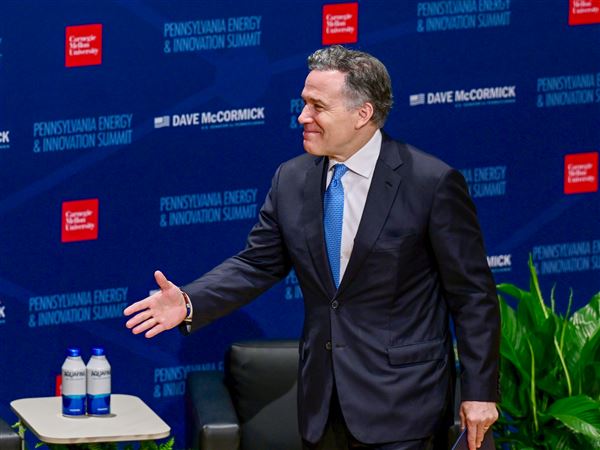Not long ago, the Pittsburgh region had health care with confidence. Not long ago, it had insurance coverage with certainty. Those days are gone.
The state of doubt in the state of affairs brought by the Jan. 1 parting of UPMC and Highmark is an affront to patients, and it’s becoming more urgent that the state broker some semblance of order and predictability beyond the nebulous terms of a consent decree hatched last summer. The latest example of the decree’s imprecision involves the phrase “continuity of care”; it triggered the second formal letter from the state in the space of a week to the CEOs of Highmark and UPMC.
The Dec. 30 letter from the Department of Health contests a UPMC declaration last month, which ran counter to the hospital network’s sky-is-falling marketing, that the continuity of care provision will enable under-65, pre-2015 Highmark customers to maintain relationships — after all — with their UPMC doctors at in-network rates.
Although Highmark agrees with the state, countless patients with UPMC physicians and Highmark coverage are worried and frustrated.
Should they believe UPMC’s chief medical officer, Steven Shapiro? He’s the one who emailed UPMC doctors last month that “any Highmark patients under your care, whether it is for preventive, acute or chronic care, have the right to continue in your care at in-network rates.”
Or should they believe state health Secretary Michael Wolf? His letter to the competing health-care giants said UPMC’s interpretation is overly broad and that “patients who have simply seen physicians for basic preventive care, non-serious, or non-recurrent illnesses, injuries, etc., would not be eligible for continuity-of-care” under the consent decree.
The poor patient will never know whom to believe — until the bill comes in the mail. Thank you, UPMC, and thank you, Highmark, for working out the details in advance.
The Health Department’s Dec. 30 letter followed one on Dec. 24 to UPMC and Highmark from the state health department, insurance department and attorney general ordering binding arbitration for the nonprofits’ dispute over Highmark’s termination (for clarity’s sake, Highmark said) of 700 UPMC physician contracts. UPMC then said Highmark’s Medicare Advantage plans would be out-of-network for its doctors and facilities.
After expressing disappointment at Highmark and UPMC in the Christmas Eve letter, the state officials said, “you are still unable to reach an agreement in the interests of Western Pennsylvania consumers, in particular given the general agreement of the parties on core underlying principles.”
Ah, yes, medicine’s core principles. Wasn’t one of them “First, do no harm?”
Plenty of harm is now being done to people in southwestern Pennsylvania by UPMC’s and Highmark’s failure to agree on the particulars long before they went their separate ways. State officials are complicit, too, for what is looking more and more like a flawed consent decree that is giving Pittsburghers health care by arbitration and health insurance by dueling letters and emails.
It’s no way to treat your customers.
We can only hope that Gov.-elect Tom Wolf is getting up to speed on this regional disaster left by the previous administration. The Pittsburghers on his transition team must convince him to intervene and force Highmark and UPMC to end the confusion now degrading the community’s once-certain access to health care.
First Published: January 11, 2015, 5:00 a.m.














